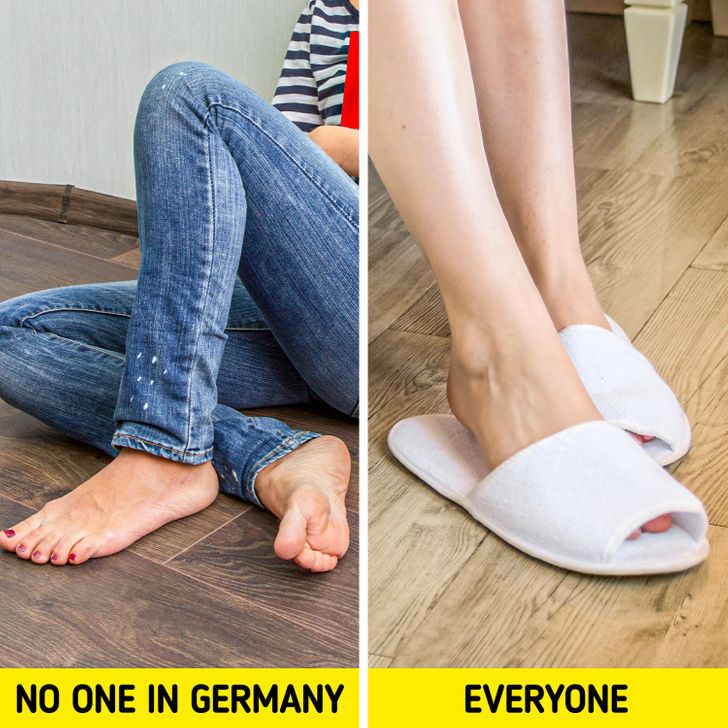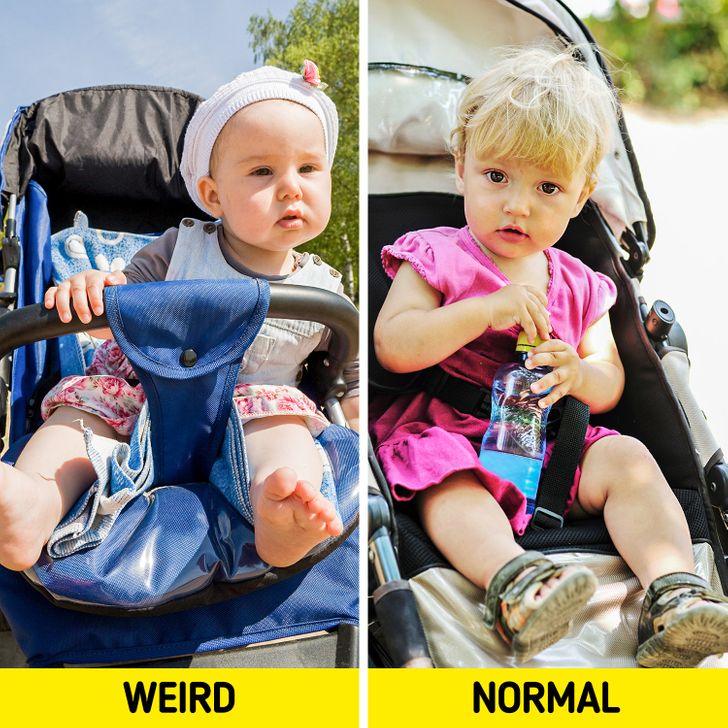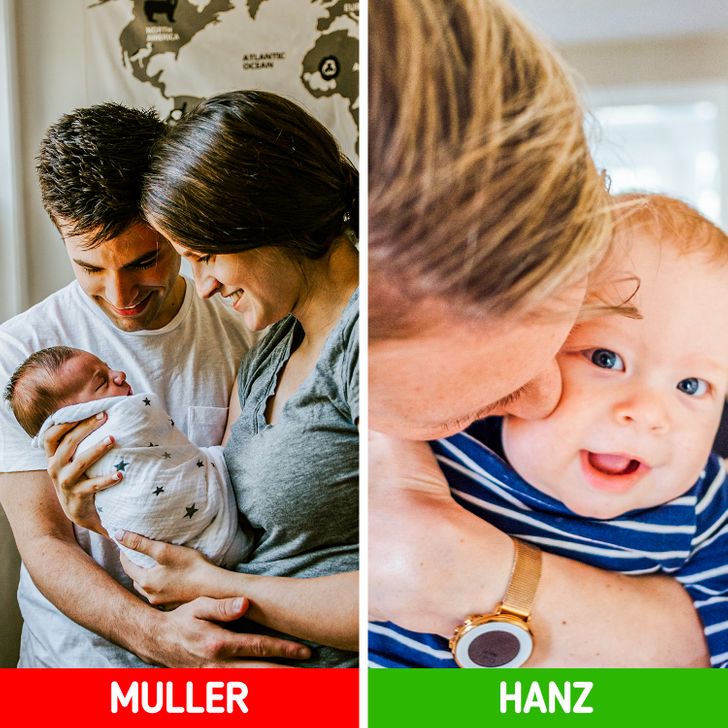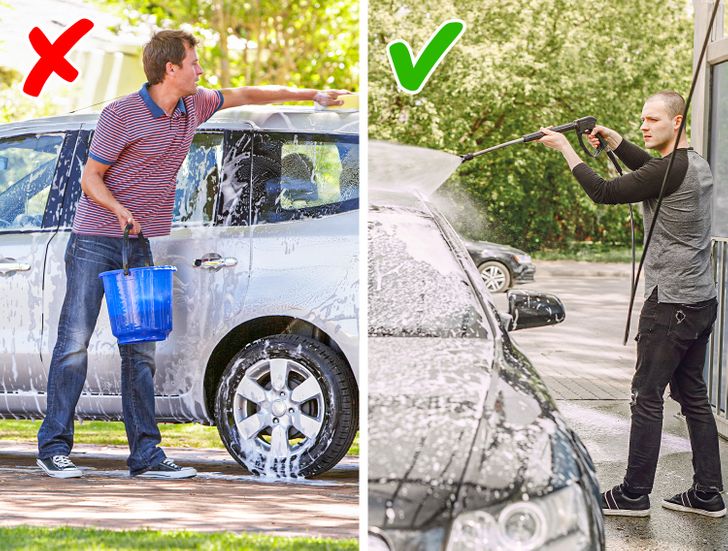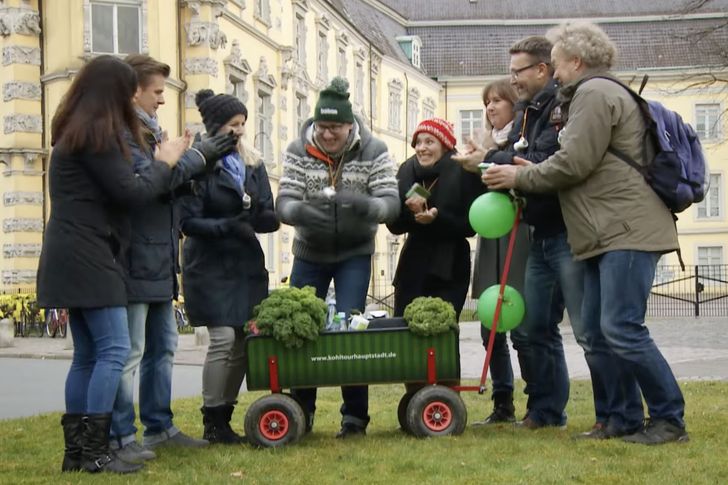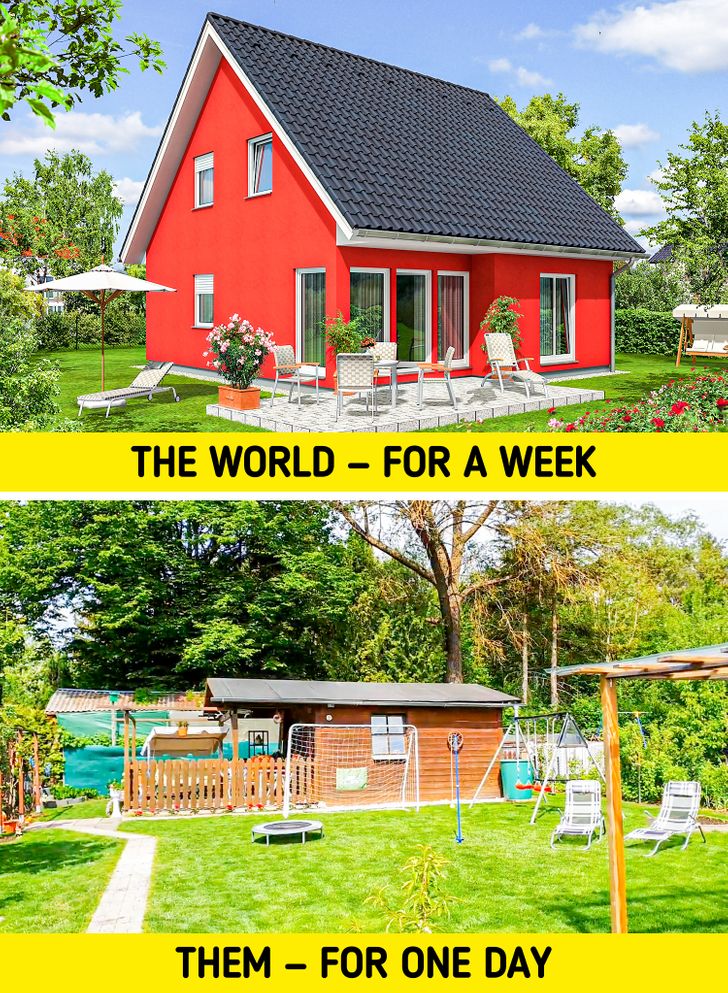Sorry, but as someone who has studied, lived and worked in Germany, and a regular visitor, this article does not pass even basic fact-checking. Just about everything in it is complete rubbish, or a massive generalisation.
Germans may, or may not, weat shoes indoors. No real difference to, well, anywhere.
German floors are not cold. German heating is as good as anywhere else.
It is not uncommon to see children with no shoes in their prams. Again, pure personal choice.
Germans don't go insane as soon as a seasonal vegetable becomes available, with the possible exception of asparagus, which does indeed get great publicity and a sudden surge in (generally vastly over-priced) specialities and local asparagus - based delicacies. Otherwise, no. Possibly certain local customs, but nothing more than anywhere else.
Germany doesn't have a committee deciding if your name is OK. In common with many European (and some other) countries, there is a list of acceptable names, which is well known and very wide-ranging. If you want to call your kid Apricot Trampoline Kit-Kat God, you can apply for it (which can be expensive) and really should not be having children in the first place.
Herman's are not banned from staying overnight in country homes. Indeed, having a second, rural, home is a middle class statement and very common. Many small villages are made up almost entirely of second homes, used for weekends and week, two week holidays. I think you may be getting mixed up with garden sheds and huts on allotments, where such rules often apply (as they do in most countries).
There are few, if any, set fines for insults. It depends on who is doing the insulting, how drunk or potentially violent they are, and who they are insulting. If you insult a police officer you probably will get a fine, although a warning would be more common first time. If two drunks in a bar insult each other the chances are they will fall over and sleep it off.
And while gardening clubs and vegetable patches are common in Germany (all types of clubs are; if three Germans meet on holiday they will have formed four clubs, complete with elected officials, a comprehensive rulebook, and club emblems and badges, within 24 hours), they are nowhere near as widespread as they are in England, Ireland or, indeed, Russia.
And both types of potato pictured are grown, and available in the shops.
There are many peculiar things in the German psyche, many customs and ways of looking at life which seem strange to outsiders, but this article quite obviously doesn't have a clue what they are.
7 Facts About the Lives of German People That Will Make You Say, “We Need That Too!”

In addition to traditional laws, many countries have unspoken behavior rules that seem strange to foreigners. Germany is no exception. They also have their own specifics of life that seem routine for locals but take time for tourists and immigrants to get used to.
Bright Side studied the blogs as well as German laws and now we know what one should be ready for when they decide to visit the motherland of Oktoberfest.
It’s not customary to walk barefoot at home.
No matter what the temperature outside is, German people always walk around in shoes when at home. They can be regular slippers or a pair of sneakers or shoes specially bought for this purpose. There is actually nothing romantic about this habit since Germans have to put on shoes because the floor inside their homes is always very cold. It is so cold that one can easily get sick. That’s why you shouldn’t refuse slippers when you are offered a pair in Germany.
This unspoken rule also applies to cases when feet don’t touch the ground. For example, once some young parents heard how a friend got surprised by seeing their kid sitting in a stroller barefoot, “What? No shoes?” The temperature outside was 99°F at that moment.
The administration can refuse to register a child if their parents came up with a strange name for their baby.
In order to register their baby, parents need to submit an application to the local registration office called Standesamt and indicate the name they chose. If the parents’ name option sounds weird, if it’s a surname, or if it’s the name of a product, the application can be rejected. Since the procedure of re-submitting the application is very expensive, Germans prefer to give their babies traditional names.
It’s prohibited to wash a car near your house.
In most regions of Germany, it is forbidden to wash your car in unequipped places. This is because dirty water gets into the ground and negatively affects the surrounding nature. That’s the reason why self-service carwashes are so widespread in this country. The water used there doesn’t end up in the soil: it is collected, filtered, and even restored for reuse.
They start to break bad when fall vegetable season starts.
With the coming of fall and the appearance of fall vegetables at the markets, the Germans begin to add them to all the dishes they cook. Also, they arrange special celebrations for certain vegetables.
You should not let your car run out of fuel when driving on an autobahn.
Autobahns are true sights to behold in Germany. There is no max speed limit on this highway.
Apart from that, any stops not related to a breakdown of the car are prohibited on the autobahn. That’s the reason why there is a ban on empty gas tanks: if the fuel runs out unexpectedly, the car will interfere with other road users.
One can’t spend much time in the country house.
German people who have country houses are a part of a horticultural partnership that establishes special rules on these sites. It is prohibited to build huge homes a-la castles here — a country house should look modest and be no bigger than 260 square feet. It should have all the necessary facilities for a person’s comfortable stay but it should be equipped so that no one can stay there for a long time.
It’s all about the lack of a fire-prevention system — because of this, it’s not possible to provide timely assistance in case of an emergency. For security reasons, it is forbidden to be in the country house after 10-11 PM.
Community gardens are quite popular in Germany. These gardens have various names in German: “Schrebergarten,” “Kleingartenanlage,” or “Gartenkolonie.” Based around a small plot of land, many of them have small huts and can be rented for gardening.
One can get a big fine for insulting another person.
The punishment for an insult is enshrined in the country’s Criminal Code. Depending on the type of violation, this can be a fine or imprisonment for up to one year. A fine can be issued for various humiliating gestures and statements. For example, if you show your tongue to another person, you should be ready to pay €150 ($180), if you twist your finger at your temple, the fine will be €750 ($900). These fines can reach up to €4,000 ($4,735).
Which of these rules would you find most difficult to follow if you moved to Germany?
Bright Side has its own podcasts now. Take cool articles with you and listen to new stories whenever and wherever you want.
Comments
German here. Of course we are barefoot at home (even in winter), our toddlers are barefoot and „Hanz" isn’t even a Name.
I don't think my country needs any of those "rules" as they are kind of weird 😅
I believe it really depends on the season, if it's cold you would wear warm socks or slippers just anywhere, but if it's hot I personally prefer walking barefoot
the insult law needs to be everywhere
Related Reads
My In-Laws Forced Me to Leave My Vacation Early—They Crossed Every Line

12 Moments That Show Quiet Kindness Brings the World Together
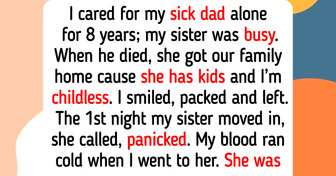
I Found Out My MIL Was Sabotaging My Gender Reveal—Now I’m the Family Villain

12 Life Moments Where Quiet Kindness Played the Main Role

My Parents Chose My Golden Child Brother Over Me—Until They Needed My Help
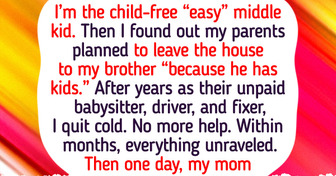
15 Times People Refused to Be Mean—And Kindness Proved More Powerful
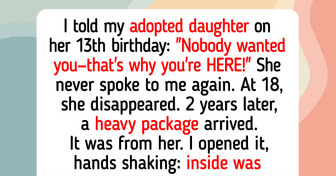
15 Pets Who Made a Mess and Feel Absolutely No Shame

12 Moments That Show Romance Is Really About Small Acts of Kindness

I Refuse to Sacrifice My Life Because My Family Chose Me as Grandma’s Caretaker

12 Moments Where Empathy Showed the Power of a Kind Heart
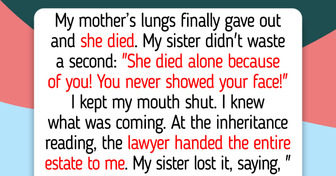
I Refuse to Risk My Son’s Safety to Save My Ex’s Child

10 Stories That Prove Our Parents Are So Much Stronger Than Superheroes

